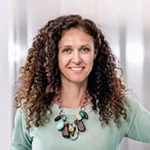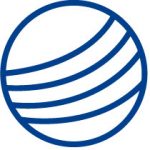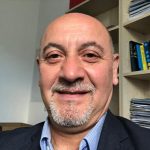
Oslo Symposium
Communicating Research for Academic and Public Engagement: Innovations, Insights, and Impacts
You are invited to a two-day symposium that seeks to bring together researchers interested in enhancing their research communication skills, those conducting research on communication practices, and teachers who specialize in this field. The symposium aims to explore diverse strategies and innovative approaches to make research accessible and engaging to wider audiences.
25th and 26th of September 2025 OsloMet, Oslo Metropolitan University Norway
Deadline for registration: September 15th
Symposium Program
Subject to minor changes
Day 1
When: September 25th, 12:30 – 17:00
Where: OsloMet, P32, N010.023
Activities: Workshops and training for PhD candidates, early career researchers, and all researchers who wish to enhance their abilities to communicate for wide audiences.
The first day is tailored for PhD candidates, early career researchers, and others with an interest in learning effective research communication strategies. Participants will have the opportunity to engage in two workshops, in addition to a masterclass with a panel of experts, where they can submit examples of their work for constructive feedback. (The master class will have limited places and requires separate registration).
12:30 – 13:00: Welcome, coffee and mingling
13:00 – 14:00: Workshop: Flexible writing for a world beyond Academia. Led by Raffaella Negretti and Baraa Khuder, Chalmers University of Technology, Sweden.
Scientific and academic writing are changing and increasingly include new genres aimed at a variety of audiences and for a variety of purposes, often beyond academic and specialist circles. After a brief introduction to this expanding ecology of genres, we will work hands-on through a guided writing task that is grounded in the participants’ own research. This task will include a sequence of activities including analysis of science communication genres, discussion of readers’ expectations, writing practice, and targeted peer feedback. Participants are required to bring an abstract for one of their papers (it is ok to make one up if none are available) and will leave with an initial draft of a science communication text about their research.
14:00 – 14:30: Break
14:30 – 15:30: Workshop : From research to reach: Communicating science effectively on social media. Led by Julio Gimenez, University of Westminster, London, UK.
This hands-on workshop introduces doctoral researchers to practical models of science communication tailored for digital and social media. In this workshop, we will explore different strategies—from storytelling threads on Twitter to engaging visual content on Instagram—highlighting the pros and cons of each. Through discussion and real examples, participants will reflect on their own online presence and experiment with crafting compelling posts about their own research. This workshop will help participants communicate science with clarity, creativity, and confidence.
15:30 – 15:45: Break
15:45– 17:00: Masterclass for PhD candidates (Requires special registration)
Day 2
When: September 26th, 09:00 – 15:45
Where: OsloMet, P46, PA318
Activities: The second day focuses on researchers and teachers involved in various aspects of research communication. It includes two keynote talks, a poster session, lightning talks, and a roundtable conversation.
9:00 – 9:15: Welcome and a brief introduction to the DILAN project, Tom Muir, Kristin Solli and Pavel Zemliansky
9:15 – 10:15: Keynote: Digital writing experiences: How STEMM women scientists craft new genres, Oana Maria Carciu, University of Zaragoza, Spain
This talk explores how female scientists experience writing for science communication in the digital environment. I will begin by outlining the innovative research design that enabled the exploration of these digital writing experiences from the unique perspectives of women in science. Drawing on three compelling case studies, I will then illustrate how these scientists actively claim their expertise by crafting new genres. They use these digital forms to highlight research that traditional publication practices often obscure. This discussion will also offer insights into the specific training needs of early career female scientists such as digital multimodal composing skills, writing processes, and digital literacies
10:15 – 10:30: Break
10:30 – 11:15: Lightning talks, Session 1
- Developing a program in science communication and public engagement at a US University, Scott E. Solomon, Rice University, US
- Perceptions and use of GenAI and corpora for scientific writing in L2 university contexts: A case study, Alejandro Curado, University of Extremadura, Spain
- Learning to Speak Digital Science: Insights from an Online Scientific Communication Course, Steriu Luminita & Simion Andreea, Ovidius University of Constanta, Romania
- Bridging the Gap: Enhancing Scientific Communication Skills in Undergraduate and Master’s Programs, S. Perez-Gaviro, & Miguel A. Vela-Tafalla, University of Zaragoza, Spain
- Personification and objectification in metalinguistic conceptualizations of Korean bug names as a means to communicate science, Jakub Krzosek, SWPS University, Poland
11:15 – 11:30 Break
11:30 – 12:30: Keynote: Digital dialogues: Researching and teaching science communication for a diverse world. Julio Gimenez, University of Westminster, London, UK
This session explores current approaches to researching and teaching science communication with a focus on inclusion, interdisciplinarity, and digital engagement. Drawing on case studies and classroom practices, the session examines how communicators can navigate complex online environments, reach underserved audiences, and reflect critically on the power dynamics of public science. The session offers perspectives and practical insights for shaping science communication that resonates widely and meaningfully.
12:30 – 13:30: Lunch
13:30 – 14:15: Greetings and short remarks from Tanja Storsul, Pro-Rector Research and Development, Oslomet
Lightning talks, Session 2
- Critical Reflection and Knowledge Validation in Doctoral Research: Between Autonomy, AI, and Digital Genres, Monica Vlad & Alina Buzatu, Ovidius University of Constanța, Romania
- What can a better understanding of context do for EAP course development? Rob Playfair, Birkbeck, University of London, UK
- Training Future Architects in Multimodal Communication Through Intercultural Online Projects, Ana María Martín Castillejos & Silke Motl, Universidad Politécnica de Madrid, Spain & FH Münster, Germany
- Engagement, Attitude and Graduation Across Genres: Using SFL APPRAISAL to Teach Science Blog Writing, Karin Whiteside, University of Reading, UK
- Communication repertoires within dance environments through the lens multimodality, Eleftheria Sofroniou, University of Westminster, UK
14:15 – 15:00: Continuing the conversation: Lighting talks follow-up-mingle & coffee
15:00 – 15:45: DILAN summary roundtable: Experiences from DILAN so far and next steps
Keynote Speakers

Chalmers University of Technology, Sweden

Chalmers University of Technology, Sweden

University of Westminster, UK

Univesity of Zaragoza, Spain
25th and 26th of September 2025 OsloMet, Oslo Metropolitan University Norway
Deadline for registration: September 15th